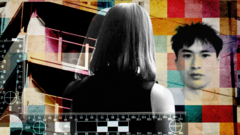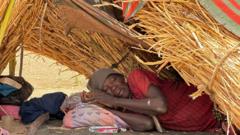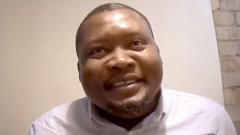After Zhenhao Zou was found guilty of raping multiple women, more victims have come forward, sharing harrowing stories of assault in both China and the UK. Despite the trauma, many express their guilt for not reporting sooner due to cultural and legal barriers.
The Hidden Victims: More Women Come Forward Against Serial Rapist Zhenhao Zou

The Hidden Victims: More Women Come Forward Against Serial Rapist Zhenhao Zou
Chinese women bravely share their stories of sexual assault as more allegations surface against convicted rapist Zhenhao Zou, revealing the challenges they face in seeking justice.
Twenty-three additional women have reached out to authorities with accusations against Zhenhao Zou, a Chinese PhD student recently convicted in London for drugging and raping ten women across two continents. Following his trial, where video evidence indicated up to fifty more victims, police are expanding their investigation, suspecting a larger group of victims may exist.
In interviews with the BBC World Service, two women shared their experiences of assault by Zou. One, who we are identifying as Alice, recounted being raped in London after Zou spiked her drink, rendering her unable to speak or move. Another victim, Rachel, detailed a similar experience in Zou’s hometown in China. Both women expressed regret that they did not come forward sooner, fearing they could have prevented further assaults.
Alice, a university student, was initially hesitant to report Zou because she believed substantial evidence was necessary. After meeting Zou through mutual friends, she found herself incapacitated after consuming drinks at his accommodation. When she woke to find Zou filming her as he assaulted her, she was horrified. She managed to escape after threatening to scream, but the trauma left her reluctant to pursue legal action until now, nearly four years later.
Experts highlight the difficulty foreign nationals face when reporting such crimes in the UK. Language barriers, cultural stigma, and uncertainty about their rights deter many potential victims from coming forward. The startling number of new allegations against Zou underscores the urgency for victims to speak up and seek justice.
Detractors, like Alice's friend Jie, knew of Zou's activity but felt powerless to act. He neglected to report Zou to the authorities, believing friends' testimonies would suffice as evidence. Similarly, Rachel recounted feeling that seeking justice would be futile, grappling with fear that society would blame her.
The Metropolitan Police have expressed commitment to thorough investigations of the latest claims, with the possibility of a second trial for Zou still open. With advocates and survivors like Alice and Rachel now going public, there is a growing hope that more victims will find the courage to report their experiences, and that justice can be served.
While the scars of these assaults run deep, the rise in voices speaking out marks a critical step for healing and societal change, urging a delicate approach to supporting victims.




















